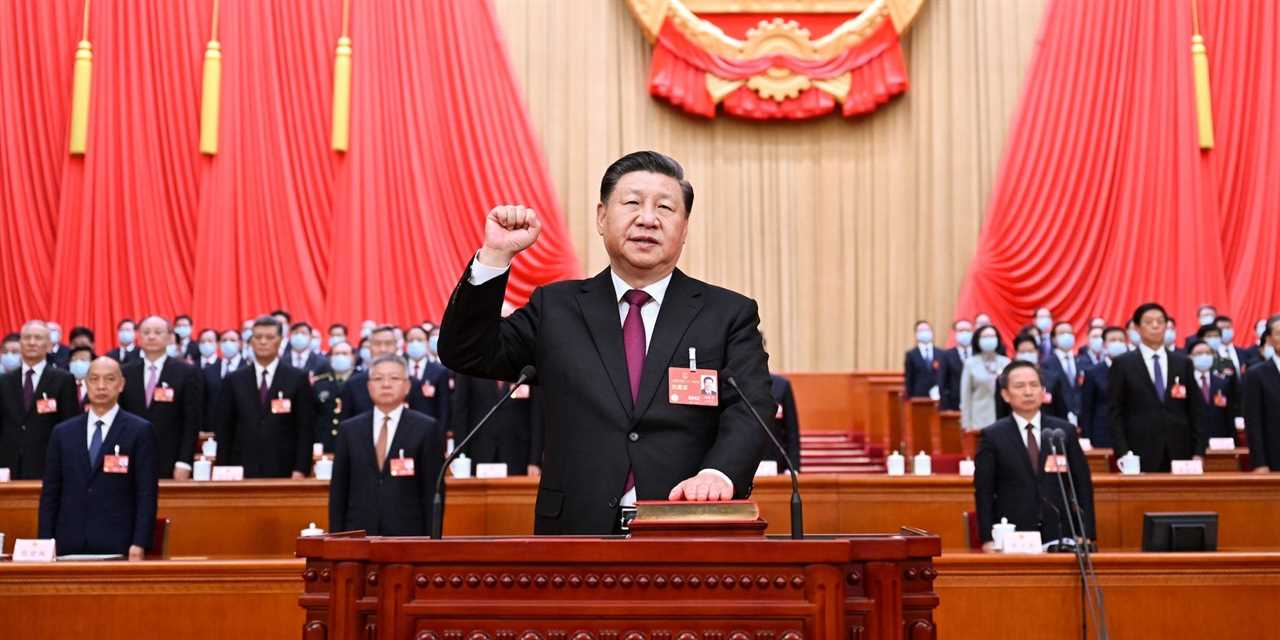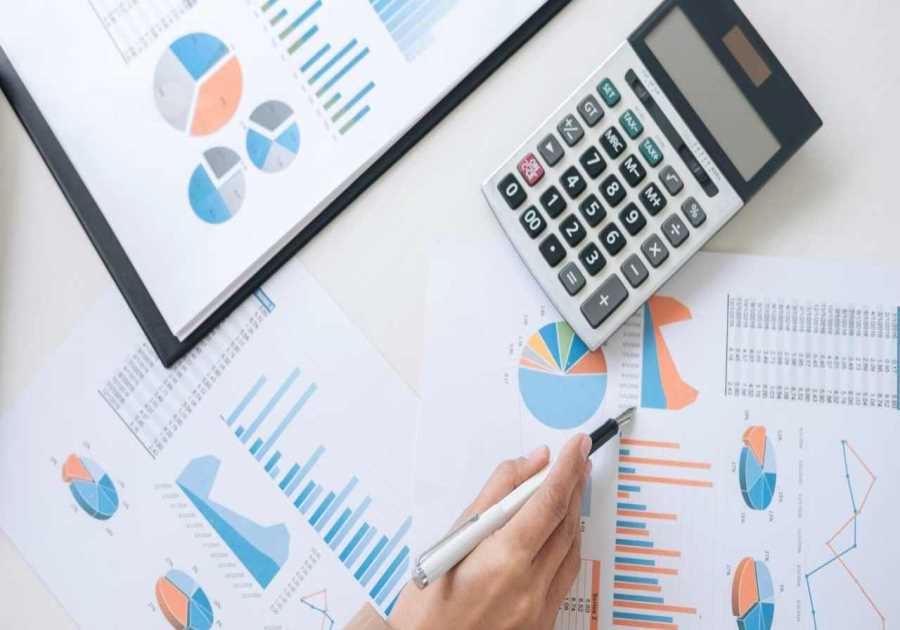Arantza Pena Popo/In
China's economy is turning into a big black blob.
This transformation means that while the country's economy will still be significant to global business, it will no longer be the lodestar for growth. It will still advance, but much more slowly. And while those on the outside will still be able to observe the economy, it will become increasingly difficult to truly understand what's going on within.
The reality of China's blob era pushed its way to the center of the global news cycle earlier this month when the Chinese government announced that it would no longer publish the unemployment rate for young people as part of its monthly jobs report. The final release for the data series — July's number — came in at a record high of 20.5%. The number had become a global shorthand for China's inability to reignite its economy since President Xi Jinping ended the country's draconian COVID-19 lockdowns. So now it's gone.
The sudden disappearance of the youth-unemployment report generated headlines, but it's not a shock for longtime China watchers. Data has been disappearing from all over the country for years now. Reports detailing everything from exports to cement production — which are arguably more crucial for understanding the country's structural malaise than youth unemployment — have vanished or become corrupted to the point that they're no longer useful. This is not happening just because the economy is slowing; plenty of countries continue publishing data even though it's no longer rosy. This is happening because Xi's China is one that puts ideology before economic growth.
For decades, the Chinese Communist Party's primary focus was to develop the economy, and more recently, to turn the Chinese consumer into a dynamic force of global demand. That transition required major reforms in how China operated its economy — slowly opening it up and giving it a more bottom-up structure in which individuals make more choices about their livelihoods. But after years of fueling China's rise, these efforts have been stopped in their tracks. Not because the reforms weren't working, but because the China they were creating is not the one Xi wants to see.
"I don't even know that it is possible to move to a private, domestic, demand-driven economy in China, given how it directly conflicts with the top-down manner in which the party typically manages the economy," Charlene Chu, the managing Director and senior analyst at Autonomous Research, told me. "It would take a sea change in thinking."
Even as the main drivers of China's economy stumble, there will be no direct support to help households power through this fragile period. Xi has been telling his people to prepare for a "struggle," to be ready to put geopolitical concerns over economic ones for the foreseeable future. This is bad news for multinational corporations — companies like Nike and Starbucks — that banked on a growing, opening China. And it's bad news for investors who've been waiting for China's growth to return to something like it was before the pandemic. The economy has been showing signs of a structural slowdown for a long time, but the strain on the system has become so great that the market can no longer ignore it.
The struggles that China faces are real — economic pain, foreign-investor concerns, crumbling demographics — but in the face of these challenges, it's clear that Xi will not bend on his vision for the sake of the country. He'd rather shut out the world.
Known unknowns
Transparency in China's economic data has always moved the same cycles as its politics. Now that Xi and the CCP are openly embracing some of the hardline practices of the past, data is disappearing in kind. The most worrying example of this growing secrecy comes from the real-estate sector. China's property market makes up about 30% of the country's GDP, making it the cornerstone of the economy. It's also a sector where crucial data has been vanishing since the end of last year.
"The National Bureau of Statistics stopped disclosing data on land sales by area after December and consumer confidence after March," Chu and her colleague Fan Zhang wrote in a recent report for clients. "It also changed how it calculates property sales and investment growth starting in March." The changes, Chu and Zhang wrote, have caused eyebrow-raising gaps between the official numbers and estimates based on an aggregate of secondary indicators.
It's not just real estate: Exports make up about 18% to 24% of China's annual GDP, but Chu wrote that the Chinese Custom Bureau's official data has begun to diverge noticeably from import data from the country's trading partners. Based on the discrepancy, it's becoming clear that China is overstating how much stuff it's shipping abroad. Chu said she now uses a blend of the two datasets, and based on that average she estimates that China's 2023 exports will fall 8% compared to 2022.
The authorities are so afraid of any sign of instability
Over at China Beige Book, a private surveyor of the Chinese economy, analysts wrote that official numbers on assets firms use to make income — from buildings to bulldozers — "now border on useless" because of the government's constant tweaking of the calculations. J Capital Research, a China-focused investment firm, wrote in a note to clients recently that key proxies for investment, such as the amount of cement, glass, and tile being produced, have disappeared as well. These are numbers investors used to figure out the growth and scale of China's construction and industrial production. Not anymore.
"Withholding/recalculating data may help manage confidence issues domestically, but in our experience it can undermine it with foreign investors," Chu wrote. "So this path isn't costless, particularly with foreign investor and multinational corporation confidence also low."
Foreign investors have been taking the hint, selling Chinese domestic stocks and bonds at a rapid rate for the past few weeks. But Beijing's policymakers have seen these same investors get the jitters before, only to come back with dollars in their fists ready to pounce on the next wave of growth. What makes this time different is that without accurate data, there's no way to tell when the next wave is coming — so there's no reason to get back in the water at all.
Unknown Knowns
Sometime in the past few months, Wall Street went from expecting that China would experience a glorious bounce back from COVID to panicking about an all-out economic collapse. The consensus from those calling for catastrophe is that Xi should do what Western governments did during the pandemic: send checks to China's households to spur consumption and grease the wheels of the economy. That's not going to happen, even though leading Chinese economists have called for it.
Partially, this is about politics. Xi's unwillingness to send out stimulus checks to households is a sign of his government's disinclination to let go of that control. He fundamentally does not believe average people should direct the economy that much. A recent essay in the Study Times, a journal explaining Communist Party thought, argued that sending direct aid to families would not only be expensive but also result in a misallocation of investment.

Xie Huanchi/Xinhua via Getty Images
"If 1000 yuan were distributed to each person, it would require about 1.4 trillion yuan, but how much could this really stimulate consumption? This would not only create a huge fiscal burden, but residents' consumption habits, structures, and willingness are also limiting its effectiveness," the essay said, according to a translation in the China-focused newsletter Sinocism. "Especially since the pandemic has to some extent strengthened residents' precautionary motives, making consumption more conservative, this would inevitably lead to inefficient use of valuable fiscal resources."
Reaching high-income status has been the Communist Party's raison d'être for decades. It's why the government joined the World Trade Organization in 2001 and why it began welcoming more and more foreign investment in the 2000s. It's why the CCP pushed the debt-to-GDP ratio to almost 280% to fight the 2009 global recession. And it is why thegovernment has continually opened the credit spigots every time there has been an inkling of economic weakness. During those fracturable moments, state banks loaned money mostly to state-owned enterprises and the government could direct the process. That process led to an inefficient allocation of capital that kept nonperforming debt in the financial system. Victor Shih, an associate professor and the director of the 21st Century China Center at University of California San Diego, told me that it would take payments totaling 10% to 20% of China's GDP to spur the kind of consumption necessary to pull China out of the doldrums the state steered it into.
This is in stark contrast to the philosophy of consumer empowerment practiced in open economies, where individuals, households, and private businesses control capital. If money is power, then handing out "helicopter money" is one version of power to the people. Xi believes power belongs in the hands of the state. Even if stimulus is the best way to push China's economy forward, the CCP is making it clear that maintaining its power is a higher priority.
You needn't pour over Communist Party doctrine to see this shift from an economy-focused government to a power- and security-focused one. The signs are everywhere: in the crackdown on private-sector businesses, in the all-too-normal disappearances of high-profile billionaires, and in Beijing's new anti-espionage law that some analysts worry will turn regular financial due diligence into a crime. Over the past year, foreign consulting firms have been raided by the authorities, and the Ministry of State Security — once a shadowy organization — has developed a presence on WeChat where citizens are encouraged to report any behavior that could be deemed anti-party. In this environment, the risk for foreigners isn't just that they break a law, it's that they don't know that they're breaking a law while they're breaking it.
Unknown Unknowns
By keeping everyone in the dark about the economy, Beijing may think that it is reclaiming power and mitigating social instability. What it's really doing is showing its hand. State mouthpieces can continue to give lip service to opening and reform, but Beijing's actions show that the Chinese Communist Party's priorities have shifted from economic development to maintaining a closed society where it is absolutely dominant.
"Basically, the authorities are so afraid of any sign of instability," Shih said. "They believe the financial system to be so fragile, they fear any shock could cause a crisis."
In part because of that fear, policymakers handle economic problems piecemeal — in order of most glaring first — without allowing for an overall correction in sectors that are failing, such as property. Over time, this only exacerbates debt problems and adds volatility to the system. While Beijing plays financial meltdown whack-a-mole, investors need to calculate risk. Without data, it's hard to know where the Chinese economy is going, but through the blur, investors can see a trajectory led by the CCP's ideological framework and weighed down by debt. In this scenario, it ultimately becomes harder, not easier, to know what's going on. And Xi's fine with that.
Linette Lopez is a senior correspondent at Insider.
Read More
By: [email protected] (Linette Lopez)
Title: China is doing everything it can to conceal the true extent of its economic turmoil
Sourced From: www.businessinsider.com/china-xi-jinping-hiding-bad-data-economy-debt-real-estate-2023-8
Published Date: Tue, 29 Aug 2023 09:26:01 +0000
.png)





